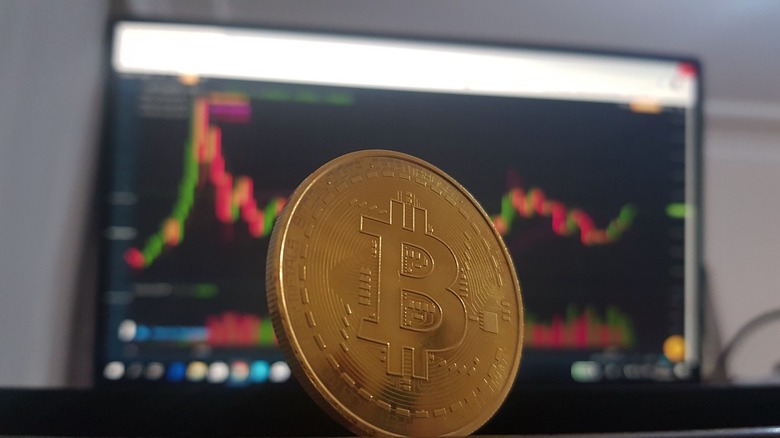China's New Bitcoin Ban Sank The Entire Crypto Market
The crypto market took a massive hit in early trading on Wednesday, shedding more than $841 billion in value, a 41% drop from Wednesday's high of $2.05 trillion. The crypto total market cap was at a record high of $2.57 trillion last Wednesday, and prices have been falling steadily ever since, fueled in part by Elon Musk's comments about bitcoin. He said last week that Tesla would no longer accept bitcoin, as mining the digital currency hurts the environment. He prompted speculation that Tesla would dump its bitcoin holdings, which it acquired only a few months ago. But Musk said Tesla would not sell its bitcoin.
Then on Wednesday, Chinese authorities announced new bans on bitcoin and other cryptocurrencies, and the entire market tanked. Bitcoin lost nearly $13,800 in value, dropping from $43,840 to $30,115. A week ago, bitcoin was trading as high as $57,700. At the time of this writing, bitcoin has recovered to $39,211, with plenty of coins changing hands. Every other digital token saw similar price swings in early trading.
It feels like deja vu, as the market has frequently delivered similarly abrupt changes in both directions. Bitcoin and the other cryptos can rise to record highs without warning, just as they can suddenly correct to unexpectedly low prices. Bitcoin has not traded as low as $30,000 since early January. Every other coin saw double-digit losses on Wednesday morning, with some coins losing well over 50% of their value in a matter of hours.
Panic selling, news of margin calls, and people calling for buying the dip are all regular events for these massive price swings in the cryptocurrency market. This massive volatility and the promise of monstrous gains are what attract many people to the market. But China's stance on cryptocurrencies will make it difficult for some people in mainland China to buy and sell digital coins.
Three Chinese industry bodies, including the National Internet Finance Association of China, the China Banking Association, and the Payment and Clearing Association of China, announced in a joint statement on Tuesday that financial institutions and payment companies are banned from providing cryptocurrency transactions.
"Recently, cryptocurrency prices have skyrocketed and plummeted, and speculative trading of cryptocurrency has rebounded, seriously infringing on the safety of people's property and disrupting the normal economic and financial order," the three bodies said in a joint statement, via Reuters.
The statement also said that virtual currencies "are not supported by real value," a premise many crypto pundits might strongly disagree with. The three regulators pointed out the risk of crypto trading, saying the prices can be easily manipulated and that trading contracts aren't protected by Chinese law.
This is China's latest attempt to control crypto trading in the region. The new ban will stop banks and online payment services from offering their customers any service related to cryptocurrency trading. They can't support registration, trading, clearing, and settlements that involve cryptocurrencies like bitcoin.
Institutions can't offer saving, trust, or pledging services to cryptocurrency. They can't accept crypto payments for services, and bitcoin and other tokens can be used for investment purposes.
Individuals can still hold cryptocurrencies in the country, but trading them seems almost impossible. China banned crypto exchanges and initial coin offerings (ICO) in the country a few years ago.
China's previous attempts to censor cryptocurrency trading had the same effect on the market, sending bitcoin and all the other coins on a downward spiral. These scary drops usually don't last long, as there are plenty of buyers ready to purchase digital currencies at bargain prices from retail investors who panic-sell.
In 2017, China shut down all its local cryptocurrency exchanges, which accounted for 90% of the global bitcoin trading. In June 2019, the People's Bank of China said it would black access to all domestic and foreign exchanges and ICO websites.
